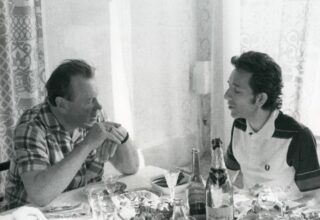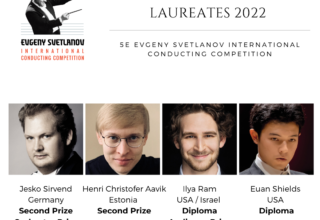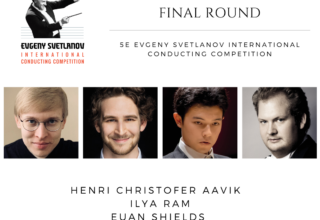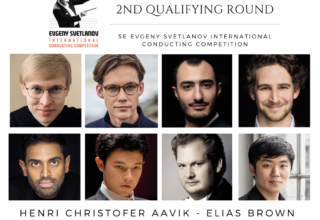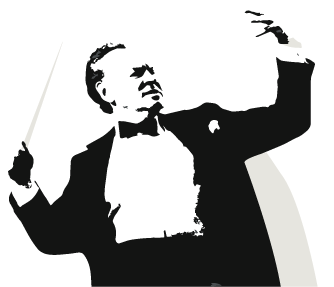MEMOIRS (2/3)
Svetlanov, The Pianist. The Early Years
By Nina Moznaïm Svetlanova
Following Ms. Gurvich’s advice, Svetlanov took regular lessons for a couple of months from the teacher with a reputation of being a master of developing piano technique. Unfortunately, his name disappeared from my memory. This pedagogue gave him exercises which miraculously expanded his pianism. It is interesting that Svetlanov always retained this; sometimes he would not touch a piano for months, but after two days of playing these exercises his technique would instantly come back, better than before.
I always observed these studies, and remember the exercises very well, but back then I did not know who wrote them, and found out later that they were by Carl Tausig.
However, what was important was not what Svetlanov played, but how he played. He played virtually without lifting the fingers, thinking in terms of musical phrase, not pianistic texture. The link between his mental command and its realization at the keyboard was close to ideal. Svetlanov always had a clear concept about HOW a certain piece should sound.
An interesting story happened during one of his visits to New York. I decided to show him one of my most outstanding students, who played Rachmaninov’s Second Sonata. The young pianist had already accomplished a lot and gave a brilliant performance. I expected that Svetlanov would now exclaim “How beautiful, how wonderful!” Instead, he said that this was good for nothing, that everything was wrong, and that such music did not exist at all. The latter was regarding the edition by Horowitz, which he completely dismissed, saying that it was unnecessary, poor etc. But most importantly, he sat down at the piano. He played sections of the first movement, the beginning of the second, and a few other fragments. His playing, even after the performance of a young, very good pianist, was utterly convincing. It was full of imagery, relief; the quality of sound, its beauty, fullness, magnitude, the breath of the line — everything was absolutely unforgettable.
Svetlanov was also fascinated with opera. It started when he was 13 or 14, or probably even before that, since Svetlanov practically grew up at the Bolshoi Theater. His own operatic debut took place at the age of three, when he went on stage there as Cio-Cio San’s son in Puccini’s Madame Butterfly. When he was around 16, we would always go to the Moscow Conservatory’s opera studio, a wonderful small theater on Vakhtangov Street where performances were given by students of the conservatory. They sang with a genuine passion and expression. Our group of friends, two boys and two girls went to every single performance. At that time Svetlanov was fascinated with Rimsky-Korsakov’s operas. Two of them that were staged there were “Snow Maiden” and “The Tsar’s Bride”. Many years later Svetlanov told me that his favorite operas were “Snow Maiden” and, of course, “Pskovityanka” (“The Maid of Pskov”), which he chose for his conducting debut at the Bolshoi Theater, and which by the way, became his last production at the Bolshoi as well. I bring up the subject of opera because it related very closely to Svetlanov’s extremely accomplished pianism. I will never forget how he played operas on the piano and sang all the parts himself and his singing was so full of expression. His playing was so brilliant that one didn’t have to go to the theater.
